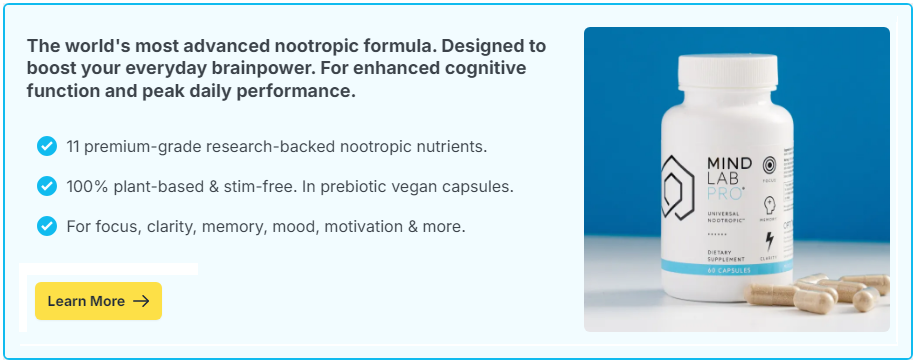
Serotonin, often called the “happiness neurotransmitter,” plays a crucial role in mood regulation, emotional balance, and overall mental well-being. Low serotonin levels have been linked to conditions such as depression, anxiety, and sleep disturbances.
For those looking to naturally increase serotonin, 5-HTP and Tryptophan are two of the most popular supplements. But which one is more effective?
Contents
What Is 5-HTP?
5-Hydroxytryptophan (5-HTP) is a naturally occurring amino acid and chemical precursor to serotonin. It is derived from the seeds of the African plant Griffonia simplicifolia and is commonly used as a supplement to support mood and sleep.
How 5-HTP Boosts Serotonin
5-HTP increases serotonin levels in the brain through a straightforward biochemical process:
- 5-HTP is a direct precursor to serotonin: Once ingested, 5-HTP is converted into serotonin (5-hydroxytryptamine) in the brain.
- Bypasses the rate-limiting step: Unlike Tryptophan, which requires multiple enzymatic conversions, 5-HTP skips a major bottleneck in serotonin production.
- Crosses the blood-brain barrier easily: This allows for more efficient serotonin synthesis compared to Tryptophan.
Scientific Research on 5-HTP for Mood and Anxiety
Several studies highlight 5-HTP’s effectiveness in boosting serotonin:
- A 1998 study in Psychopharmacology found that 5-HTP supplementation significantly improved mood and reduced depressive symptoms in patients with mild to moderate depression.
- A 2002 clinical trial showed that 5-HTP was as effective as SSRIs in increasing serotonin levels, making it a potential alternative for individuals with serotonin deficiencies.
- A 2013 study published in Neuropsychiatric Disease and Treatment found that 5-HTP helped reduce anxiety symptoms in individuals with chronic stress.
Benefits of 5-HTP for Serotonin Production
5-HTP offers several advantages for those looking to increase serotonin levels:
- Directly converts to serotonin, making it highly efficient
- May help with depression and anxiety due to its serotonin-boosting effects
- Supports sleep by increasing melatonin production
- Can improve appetite regulation, making it useful for emotional eating
Potential Side Effects of 5-HTP
While 5-HTP is effective, some individuals may experience:
- Digestive issues (nausea, bloating, diarrhea)
- Headaches
- Possible serotonin syndrome if combined with SSRIs or MAOIs
What Is Tryptophan?
Tryptophan is an essential amino acid found in foods such as turkey, eggs, dairy, and nuts. It serves as a precursor to serotonin but undergoes multiple steps before reaching the final neurotransmitter form.
How Tryptophan Boosts Serotonin
Tryptophan increases serotonin levels through a more complex pathway:
- Tryptophan → 5-HTP → Serotonin: Unlike 5-HTP, Tryptophan must first be converted into 5-HTP before it can become serotonin.
- Competes with other amino acids: Since Tryptophan shares transport pathways with other amino acids, it may not always be efficiently delivered to the brain.
- Influenced by dietary intake: Tryptophan is found in protein-rich foods but requires proper digestion and absorption to be effective.
Scientific Research on Tryptophan for Mood and Anxiety
Studies support Tryptophan’s role in serotonin production:
- A 1980 study in Journal of Clinical Psychiatry found that Tryptophan supplementation improved mood in individuals with mild to moderate depression.
- A 2007 review concluded that Tryptophan can be an effective treatment for seasonal affective disorder (SAD) due to its serotonin-enhancing properties.
- A 2015 study in Neuroscience & Biobehavioral Reviews found that dietary Tryptophan supplementation enhanced serotonin production and reduced anxiety symptoms.
Benefits of Tryptophan for Serotonin Production
Tryptophan provides several benefits for those looking to support serotonin naturally:
- Widely available in food, making it easy to incorporate into the diet
- Supports melatonin production for better sleep
- Enhances overall mood stability
- Less likely to cause serotonin syndrome compared to 5-HTP
Potential Side Effects of Tryptophan
Tryptophan is generally safe but may cause:
- Gastrointestinal discomfort (bloating, nausea)
- Drowsiness or fatigue
- May interact with antidepressants
5-HTP vs. Tryptophan: Which Is the Better Serotonin Booster?
Both 5-HTP and Tryptophan boost serotonin, but they work differently:
| Feature | 5-HTP | Tryptophan |
|---|---|---|
| Primary Mechanism | Direct precursor to serotonin | Precursor to 5-HTP, then serotonin |
| Best For | Fast serotonin boost for mood and sleep | Long-term serotonin support through diet |
| Onset of Effects | 1-2 weeks | 2-4 weeks |
If you need a quick serotonin boost for mood and sleep, 5-HTP is the best option.
If you prefer a slower, more natural approach to serotonin production, Tryptophan may be the better choice.
Some individuals stack both supplements for enhanced benefits, but consulting a healthcare professional before combining them is recommended.

